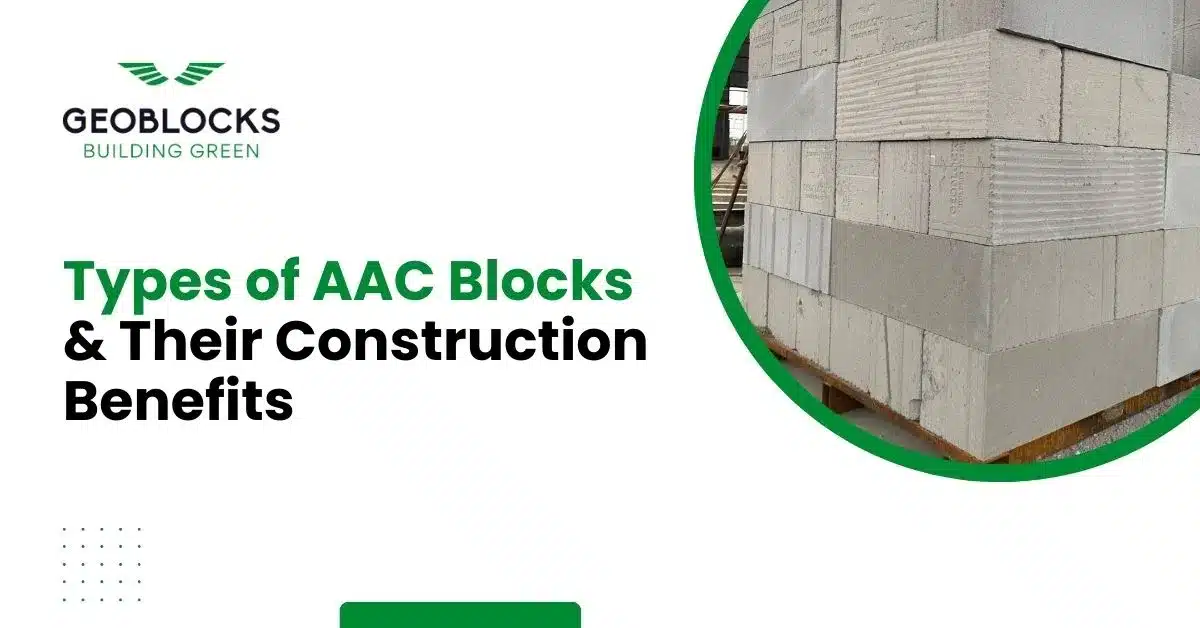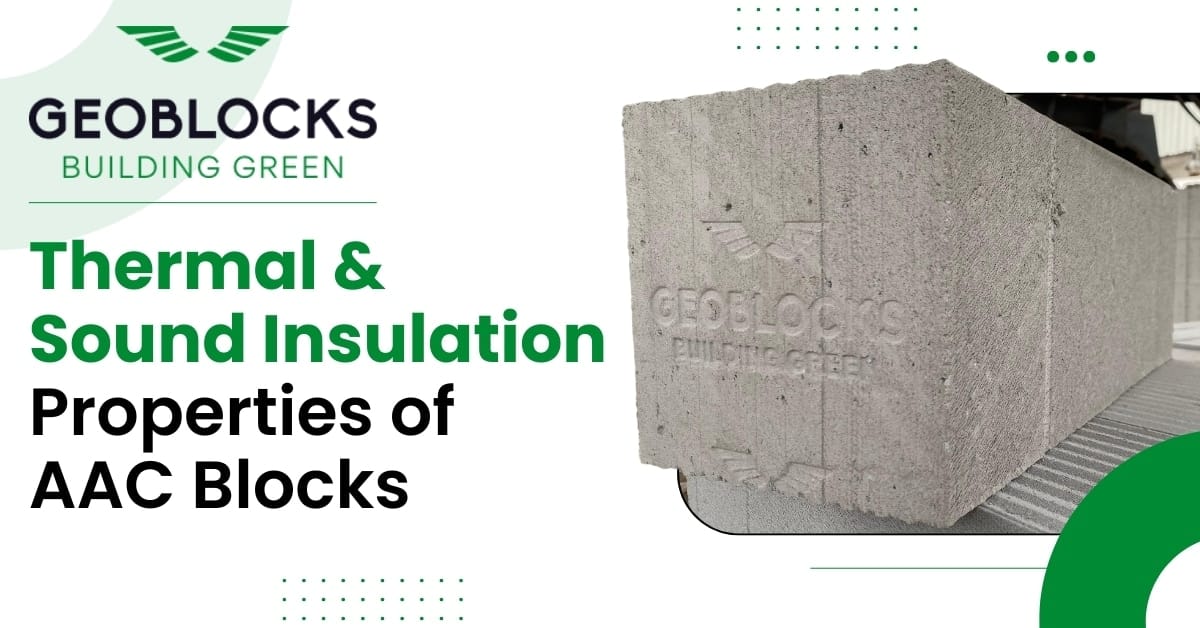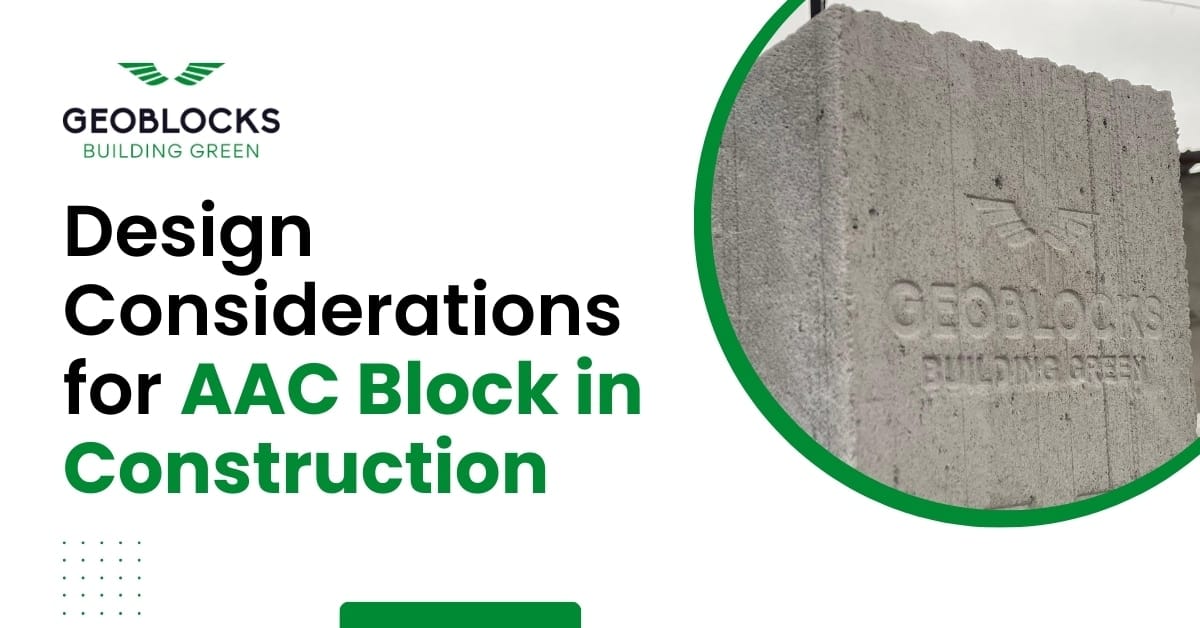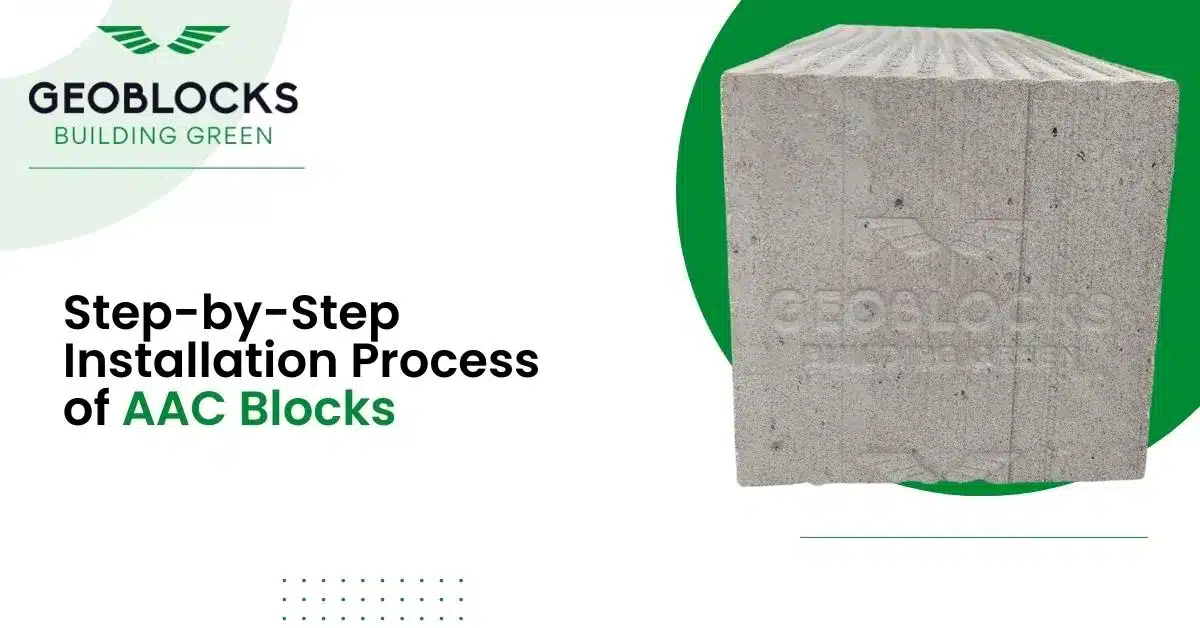In today’s world of smart construction and sustainable living, insulation plays a crucial role in…

Autoclaved Aerated Concrete (AAC) blocks have revolutionized modern construction due to their lightweight nature, durability, and eco-friendliness. These blocks are available in various types, each catering to specific construction needs. Let’s explore the types of AAC blocks and their associated benefits to understand why they are an ideal choice for builders and architects.
Types of AAC Blocks
AAC blocks come in various types, each designed to fulfil unique construction requirements. From lightweight to fire-resistant blocks, there’s an option for every project. Below, we delve into the details of each type:
Standard AAC Blocks
These are versatile blocks widely used in various construction projects for their uniform size and ease of use.
- Applications: Widely used for walls in residential, commercial, and industrial buildings.
- Features: Easy to handle, quick to install, and suitable for non-load-bearing structures.
Hollow AAC Blocks
Designed for enhanced insulation and reduced weight, these blocks are perfect for low-load applications.
- Applications: Best suited for partitions, boundary walls, and low-load applications.
- Features: Enhanced thermal insulation and reduced material usage.
Reinforced AAC Blocks
Built with embedded reinforcements, these blocks provide extra strength for load-bearing structures.
- Applications: Ideal for load-bearing walls and high-rise structures.
- Features: Combines lightweight properties with high structural strength.
Lightweight AAC Blocks
Lightweight yet durable, these blocks are ideal for minimizing structural load in high-rise buildings.
- Applications: Perfect for high-rise buildings where reducing structural load is crucial.
- Features: Eases transportation and minimizes construction load.
High-Strength AAC Blocks
These blocks offer superior compressive strength for industrial and heavy-duty applications.
- Applications: Suitable for industrial projects and heavy-duty walls.
- Features: High durability and resistance to wear and tear.
Fire-Rated AAC Blocks
Engineered for fire safety, these blocks are a reliable choice for fire-prone areas.
- Applications: Frequently used in firewalls, kitchen areas, and industrial setups.
- Features: Excellent fire resistance for improved safety.
Fire Resistant AAC Blocks
Specifically designed to provide maximum fire protection for sensitive structures.
- Applications: Commonly used in buildings with high fire safety requirements.
- Features: Enhanced safety and peace of mind.
200 mm AAC Block
Thick and robust, these blocks add stability and insulation to your construction projects.
- Applications: Used in exterior walls and heavy-duty partitions.
- Features: Provides robust thermal and sound insulation.
100 mm AAC Block
Thin, efficient, and lightweight, ideal for creating internal partitions.
- Applications: Suitable for internal walls and non-load-bearing structures.
- Features: Easy to handle and install, saving construction time.
Long-lasting AAC Block
Designed for durability, these blocks ensure minimal maintenance and extended lifespan.
- Applications: Used in projects requiring high longevity and minimal maintenance.
- Features: High resistance to environmental wear and tear.
Rectangular Fly Ash AAC Blocks
Precision-crafted using fly ash, these blocks are eco-friendly and dimensionally accurate.
- Applications: Ideal for walls where precision and uniformity are critical.
- Features: Eco-friendly and dimensionally accurate.
Looking for durable and energy-efficient building materials? Get in touch with us to learn more about our AAC block offerings!
Construction Benefits of AAC Blocks
AAC blocks provide numerous advantages that make them a preferred choice in modern construction. Here’s an overview of their benefits:
Lightweight Nature
- AAC blocks are up to 50% lighter than traditional bricks, reducing the overall dead load on a building.
- This feature makes them ideal for high-rise structures and retrofitting projects.
Thermal Insulation
- The unique cellular structure of AAC blocks provides superior thermal insulation.
- This reduces heating and cooling costs, ensuring energy-efficient buildings.
Eco-Friendly Material
- Made from natural resources like fly ash, lime, and cement, AAC blocks are a sustainable alternative to traditional construction materials.
- Their production process emits fewer greenhouse gases, contributing to a greener environment.
Quick and Easy Installation
- AAC blocks are larger in size and lighter, making them quicker to install than conventional bricks.
- This speeds up the construction process and reduces labour costs.
Fire and Pest Resistance
- AAC blocks are non-combustible and can withstand high temperatures, providing excellent fire protection.
- They are also pest-resistant, as their inorganic composition does not attract termites or rodents.
Sound Insulation
- The porous structure of AAC blocks helps in absorbing sound, making them ideal for residential and commercial buildings requiring noise control.
Durability and Strength
- Despite being lightweight, AAC blocks offer excellent compressive strength and durability.
- They can withstand harsh weather conditions and are resistant to cracking.
Frequently Asked Questions
How many types of AAC blocks are there?
AAC blocks are categorized based on their density, strength, and application, including load bearing, non-load bearing, thermal insulation, and soundproof blocks.
How many categories of blocks are there?
There are generally four main categories of blocks: solid blocks, hollow blocks, thermal blocks, and acoustic blocks, each serving different construction needs.
How many different blocks are there?
AAC blocks come in various dimensions, densities, and types to suit diverse structural and insulation requirements, making them highly versatile for construction projects.
Conclusion
AAC blocks have become an essential part of modern construction, offering a range of types to meet diverse architectural and structural needs. From lightweight solutions for high-rises to reinforced options for industrial applications, these blocks provide unmatched benefits. By choosing AAC blocks, builders can ensure cost-effective, sustainable, and efficient construction projects.




